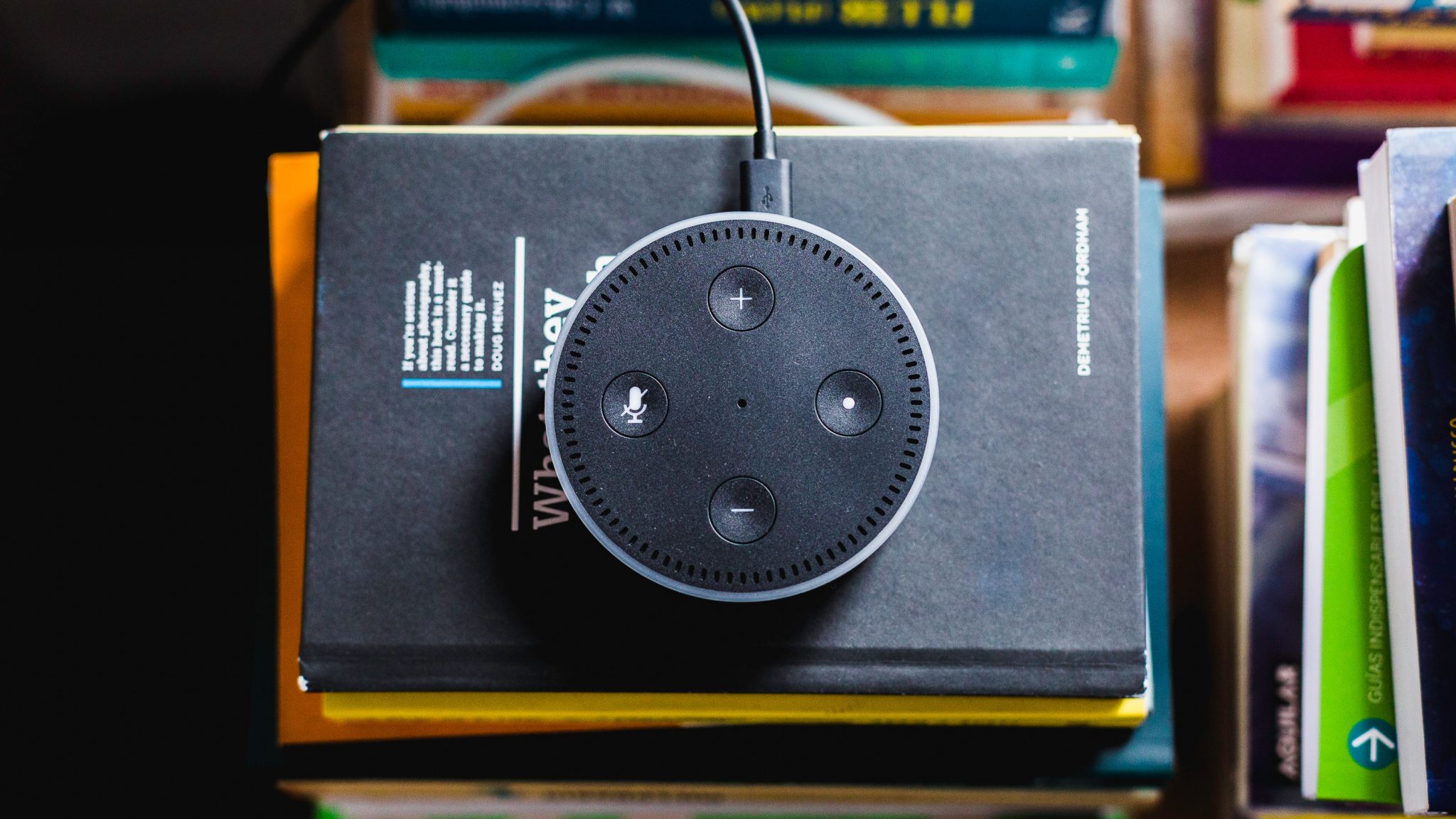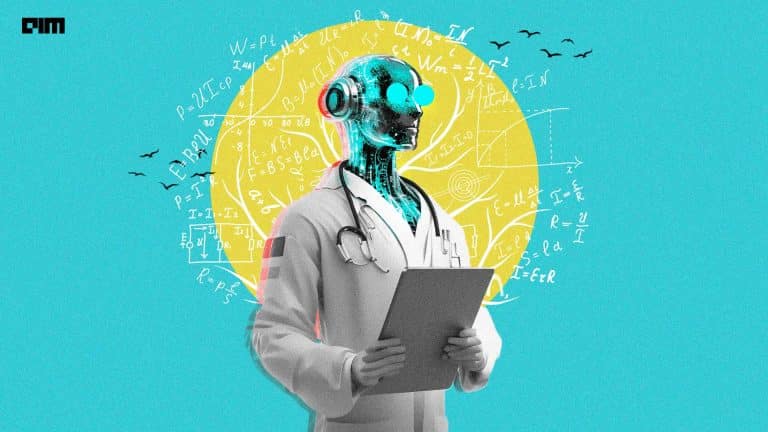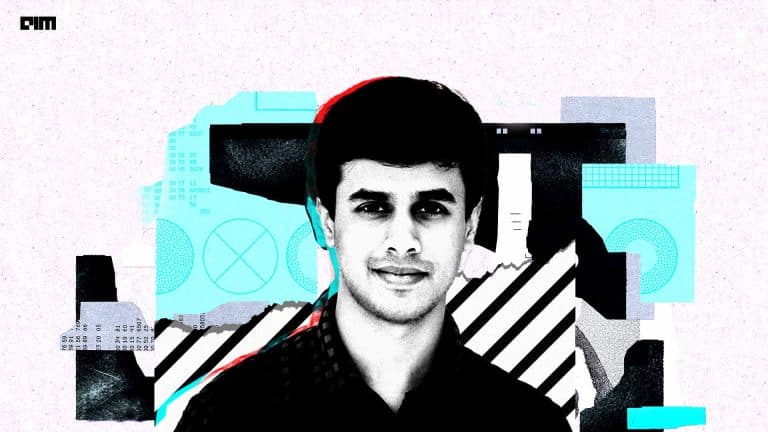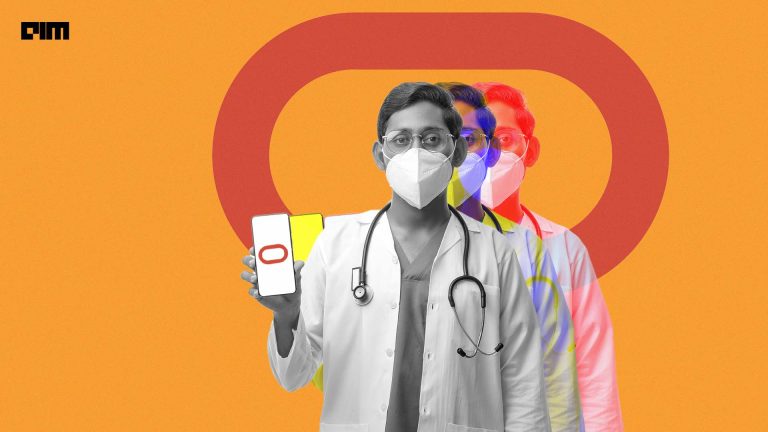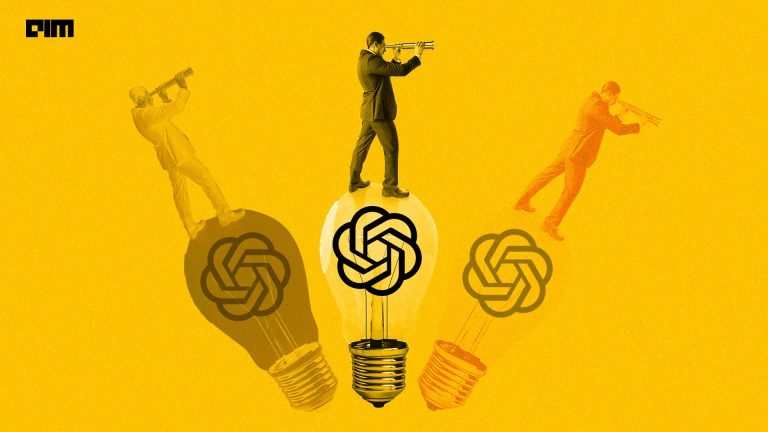
Artificial intelligence encompasses a multitude of technologies, including but not limited to analysing and discovering patterns in data. Advances in mathematics, computing power, cloud computing and algorithm design have accelerated the development of methods that can be used to analyse, interpret and make predictions using these data sources.
The field of healthcare is data-intensive — combining not only huge volumes of disparate and complex sources of data but also complex classifications and meanings.
The last couple of years have seen ideas for applied AI in healthcare emerge and deployed as well. The research has moved from paper to the patient. There are two main areas which have seen a sporadic growth in research — Genomics and Digital Medicine. While the former is directed towards gaining knowledge about what happens at the cellular level, the latter deals with how to make technology more accessible with user-friendly interfaces both for doctors and patients.
Here’s a look at what’s been happening lately in the field of medical AI:
MIT’s Tech Can Predict Cancer 5 Years In Advance
Cancer is one of the most widely researched areas ever since the machine learning algorithms for computer vision have become really good at identifying anomalies. An early-stage cancer diagnosis is currently the closest to cure.
So, researchers at MIT’s Computer Science and Artificial Intelligence Laboratory (CSAIL) and Massachusetts General Hospital (MGH) have created a new deep-learning model that can predict from a mammogram if a patient is likely to develop breast cancer as much as 5 years in the future. A 5-year window has the potential to save many lives.
The researchers are eager to apply the models to other diseases and ailments, and especially those with less effective risk models, like pancreatic cancer.
Alexa As Medical Advisor
So far, voice assistants have been entertaining the users from playing music to answering trivia. Now Amazon’s Alexa is teaming up with NHS to provide the users with medical advice. For instance, if the user has a rough night with a cough then these voice assistants can identify the audio and prescribe cough drops from trusted medical databases.
The new arrangement essentially integrates the NHS database into Alexa. When British users ask Alexa about disease symptoms or treatments, the response will correspond to information on the NHS website.
Users have always been able to ask Alexa for health advice, but the sources of the answers varied depending on the skills downloaded to the voice assistant or certain information that Alexa sources directly from third parties such as NHS and provides without the need for activating a skill.
The large scale usage still might take time, given the possibility of the data being stolen or users not being comfortable with discussing their ailments with a non-human entity.
DeepMind Predicts Kidney Disease In Advance
According to reports, Chronic kidney diseases (ones lasting more than three months) affect 10% of men and nearly 12% of women around the world. Up to 10.5 million people need dialysis or a kidney transplant, but many don’t receive these lifesaving treatments due to cost or lack of resources.
In addition, more than 13 million people suffer from acute kidney injury. Some will go on to develop chronic kidney disease or kidney failure.
DeepMind in collaboration with experts from the US Department of Veterans Affairs (VA), has developed a technology that could give doctors a 48-hour head start in treating acute kidney injury (AKI), a condition that is associated with over 100,000 people in the UK every year.
The research shows that AI could accurately predict AKI in patients up to 48 hours earlier than it is currently diagnosed.
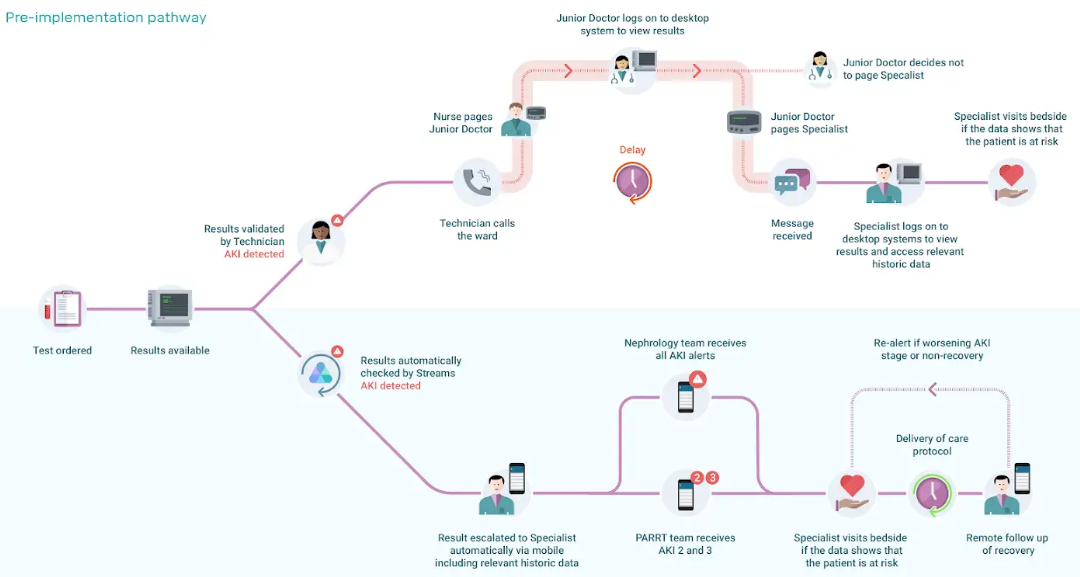
The researchers believe that this could also provide a window in the future for earlier preventative treatment and avoid the need for more invasive procedures like kidney dialysis.
Neurosurgeons Train On AI-Based VR
A team of researchers at Neurosurgical Simulation and Artificial Intelligence Learning Centre at the Montreal Neurological Institute and McGill University Health Centre, where the researchers used machine learning algorithms to guide virtual reality training platforms for neurosurgeons.
To evaluate the performance of the surgeons few metrics were categorized based on the force applied to the underlying structures and damage to the underlying brain, blood loss, and quantity of tumour removed. The level of expertise of the surgeons can then be determined accurately by looking at how well they score with machine learning models.
NHS To Set Up AI Lab
The National Health Service in England is setting up a research lab to build artificial intelligence that could help treat conditions including cancer, dementia and heart disease. The AI lab aims to help tackle some of the biggest challenges facing the NHS, including improving cancer screening, identifying patients most at risk of dementia or heart disease, and automating admin tasks, giving medical professionals more time with patients. The NHS will receive £250 million for this project. The team believes that with modern AI, a mix of human and artificial intelligence can be deployed across discipline boundaries to generate greater collective intelligence.
Google’s SMILY For Digital Pathology
Pathology images can be viewed at different magnifications (zoom levels), SMILY automatically searches images at the same magnification as the input image. SMILY strikes the right balance by equipping the doctors with domain expertise while allowing them to customise the tool for their own benefit.
How Far Is The Future?
AI has the potential to transform the delivery of healthcare, from streamlining workflow processes to improving the accuracy of diagnosis and personalising treatment, as well as helping staff work more efficiently and effectively.
Machine learning (ML) is now capable of assisting medical professionals in diagnosing critical cases like diabetic eye disease and metastatic breast cancer. No matter how improved the algorithms are, they will be useless unless a doctor finds the data sensible. So how doctors interact with information can be crucial determinants in the utility of ML technology.
There are few challenges for the AI community that looks to make it big in the field of healthcare. They can be summarised as follows:
- High running costs.
- Finding the right group of researchers with interdisciplinary knowledge.
- Collecting enough data to prevent bias.
- Keeping the data private(for ex: Alexa suggesting drops by listening to coughing sounds).
Overcoming these challenges requires a lot of rework from the grassroots level. A good start can be education. 21st-century healthcare professionals should be trained in health data provenance, curation, integration and governance, the ethics of AI and autonomous systems or tools to accelerate transformation in the world of medicine.




